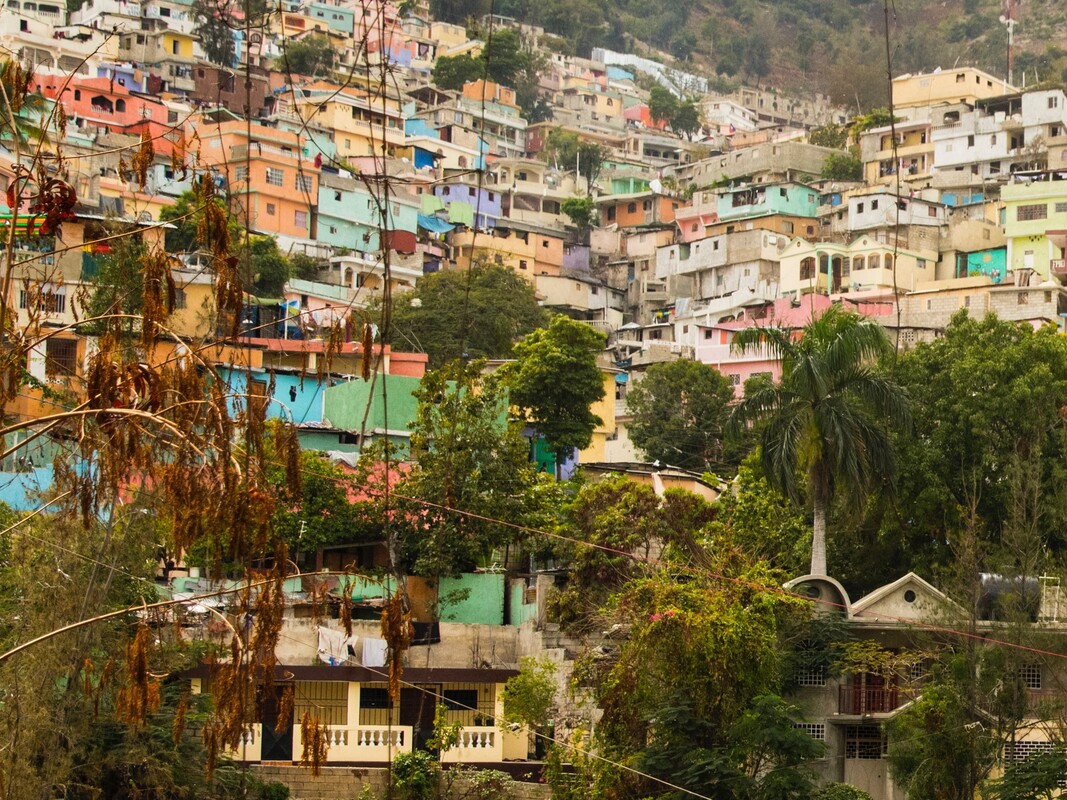|
|
|
Blog post by Vadricka Etienne, University of Nevada, Reno, USA
Each year, my immigrant father embarks on a summer trip to Haiti. A lump jumps into my throat as he prepares for his journey. He’s excited to return home, but I fear for his safety. This fear grows yearly, and my anxiety spikes whenever he doesn’t answer the phone. My thoughts race to the worst-case scenarios, mainly because we’ve discussed what to do if he was kidnapped. While the rising gang violence demanded that he skip his trip last year, he would not miss another. I understand because he is at peace when in Haiti. But I find myself taking deeper breaths only when he lands in Miami, making his way home. During the summer, I consumed conflicting media reports. Mainstream media catastrophized the gang terror, while Haitian content creators shared the mundane, such as dinners out on the town, demonstrating that the violence was not everywhere in the county. These contradictions encapsulate how the children of immigrants could have a fragile relationship with their parents’ birthplace as they often experience the country through the lens of others, very rarely their own.
In July 2023, thousands took to the streets of American cities with large Haitian immigrant populations, such as Miami, New York City and Boston, as well as international locales, such as France, Canada and Haiti, to protest the escalating gang violence plaguing the nation. Many took the streets wearing 'Relief for Haiti' T-shirts, waving Haitian flags, chanting 'Souf pou Ayiti (Peace for Haiti)' and carrying signs that read 'Haiti God has not forgotten about you' and 'Give Haiti a Chance'.
Since the assassination of President Jovenel Moïse in 2021, the lawlessness and insecurity have steadily grown, along with the countermeasures of vigilante killings (a movement known as Bwa Kale) that have provided some reprieve. With gangs controlling about 80% of the capital, there are growing concerns about displacement, kidnapping, sexual assault and murder. Haiti (as of this writing) finds itself without a president and no democratically elected governing body in place, as the terms of the remaining senators ended at the beginning of the year. Gregory Toussaint, Senior Pastor of Tabernacle of Glory Church in North Miami, Florida and CEO of Shekinah.fm, organized the march. Toussaint wanted to raise awareness of the chaos occurring in Haiti and encourage unity between Haiti and its diaspora while pushing for U.S. intervention through the support of Senate Bill 396: Haiti Criminal Collusion Transparency Act. This bill would require the State Department 'to submit an annual report to Congress regarding the ties between criminal gangs and political and economic elites in Haiti and impose sanctions on political and economic elites involved in such criminal activities'. Toussaint hopes these measures will make Haiti safer for its citizens and diaspora. Both examples — my strained feelings towards Haiti as well as the broader demonstration of the march — exhibit three racialized emotive existences described in my Identities article, '"We are here, but our hearts are in Haiti": temporal and racialized emotive existences of ethnically identified Haitian Americans'. Here, I examine how children of Haitian immigrants negotiate their (dis)connection and tenuous ties to their parents’ homeland. Drawing on in-depth interviews with Haitian Americans living in Miami, Florida, I propose that three racialized emotive existences — nostalgia, fear and hope — mark their temporal and cultural narratives. I explain how these often simultaneously occurring racialized emotive existences reveal how global oppression, anti-Blackness and subjectivity shape the second generation’s discourses about Haiti. First, nostalgia highlights Haiti’s significance as the first independent Black nation in the Western Hemisphere and the pride that this evokes for Haitian Americans who grew up in a society that shunned them. Second, fear for the present emphasizes the growing concern for safety as Haiti is wracked with political instability, economic deprivation, and natural catastrophes. The present-day condition of Haiti conjures fear as a racialized emotive existence, as trepidation prompts the need for physical safety and distance while also craving the emotional security of their parent’s presence in response. Finally, Haitian Americans anticipate a future that allows Haiti’s history and beauty to be the focal point. Much of this focus was on their children and the use of Haiti as a tool of ethnic socialization, but hope drew Haitian Americans back to Haiti. While there are a few consequences of these racialized emotive existences, such as replicating Haiti’s stratified class system and prohibiting Haiti from progressing in their eyes, these findings demonstrate Haitian Americans’ (dis)connection and tenuous ties to Haiti. My Identities article reveals the blurring of the immigrant past, the second-generation present, and the third-generation future with an in-depth analysis of the racialized emotive existences that frame the temporal and cultural narratives of Haiti for Haitian Americans.
Read the Identities article:
Etienne, Vadricka. (2023). '"We are here, but our hearts are in Haiti": temporal and racialized emotive existences of ethnically identified Haitian Americans.' Identities: Global Studies in Culture and Power. DOI: 10.1080/1070289X.2023.2264618
Read further in Identities:
Haitian, Bahamian, both or neither? Negotiations of ethnic identity among second-generation Haitians in the Bahamas Lifting the veil of anonymity: A Haitian refugee's tale, lessons for the anthropologist Black Immigrants in the United States and the "Cultural Narratives" of Ethnicity
0 Comments
Your comment will be posted after it is approved.
Leave a Reply. |
|
Explore Identities at tandfonline.com/GIDE |
|
The views and opinions expressed on The Identities Blog are solely those of the original blog post authors, and not of the journal, Taylor & Francis Group or the University of Glasgow.


